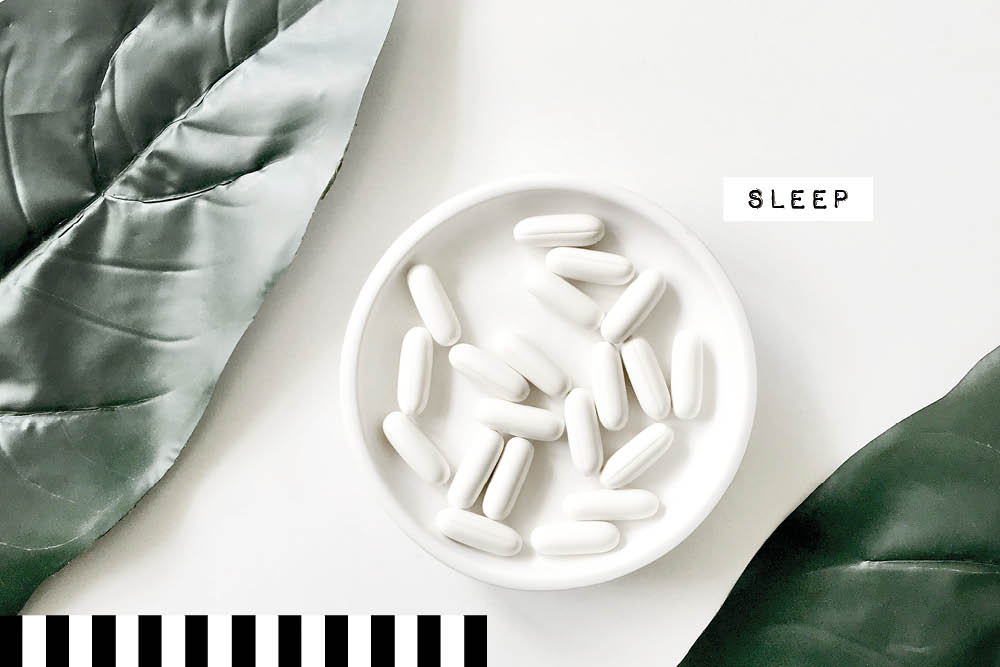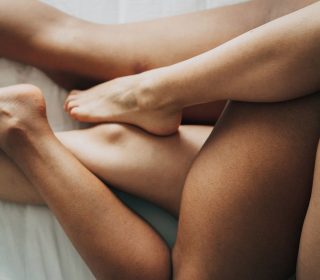6 Natural alternatives to sleeping pills

Do you struggle to sleep? Reaching for sleeping pills can be tempting when you’re suffering from insomnia. However, there are alternatives and natural ones at that. So, we’ve rounded up 6 of the best alternative methods and treatments that will help you get to sleep, without having to take a chemical supplement.
ACUPUNCTURE
Those who perform acupuncture are confident the treatment is effective for insomnia. They say it can help the body reach a more restful state.
‘Most of my clients come to me with sleep issues,’ says acupuncturist Carolyn Sykes (carolynluckygirl.com). ‘Acupuncture looks to balance Yin and Yang (introvert and extrovert) energies in the body and organs. Because of our busy modern lifestyles we tend be too yang. Sleep is yin – if you look at the yin/yang symbol, it’s half and half which creates balance.
‘When we are too yang and active, a lot of empty heat gets created in our systems which can exacerbate a busy mind, keeping us awake. Acupuncture can bring back balance by reducing this heat and calming the body.’
MEDITATION
When it comes to sleep, meditation and mindfulness are both said to be beneficial.
Last year, 49 adults with sleeping problems took part in a small experiment that saw half of them attend a class on improving sleep habits, while the other half were taught mindfulness with those who practised mindfulness reporting lower levels of insomnia.
‘Stress, emails and city living can be extremely stimulating for the mind and body,’ explains Will Williams, an instructor in founder of Beeja Meditation, a form of meditation designed for everyday people who find it difficult to switch off.
‘By entering a profound level of relaxation, the effect of these daily stresses is cleared, so it’s much easier to naturally switch off.’
HERBS AND SUPPLEMENT
Some plants have natural sedative qualities and have historically been used as sleep aids.
Up to 70% of women and 40% of men have too little magnesium, a deficiency which leads to insomnia and fatigue. ‘This is because modern food preparation strips it out,’ says Holland & Barrett head nutritionist Alex Thompson. BetterYou Magnesium Oil Goodnight Spray provides 150mg in each dose. Spray directly onto the skin every evening and massage in for best absorption (£12.69, hollandandbarrett.com).
Pukka’s Night-Time tea (£2.49) and supplements (7.45 for 30, pukkaherbs.com) contains herbs renowned for their calming effects. ‘Valerian and ashwagandha are traditionally used to encourage good sleep and reduce stress,’ says Pukka’s Sebastian Pole. Nytol’s Herbal Elixir (£6.29, boots.com) is a liquid sleep aid, which promotes calm and decreases feelings of anxiety.
FLOATATION
Research indicates that floating helps people reach a meditative state, calming the body and preparing it for sleep.
The high magnesium sulphate (Epsom salts) content in the water is beneficial as magnesium is known to regulate the levels of calcium, potassium and sodium in the body, as well as improve heart health and keep migraines at bay.
‘Floating reduces the activity in the amygdala, the fight or flight response area of the brain. This, in turn, reduces the level of the stress hormone, cortisol, in the blood, so it’s easier to sleep afterwards,’ says Edward Hawley, co-founder of Floatworks.
NEUROFEEDBACK
This specific training helps to stabilise the brain during rapid shifts in sleep and can get to the root of insomnia.
The process of monitoring brain activity is known as Neurofeedback. ‘Good sleep involves a lot of brain activity,’ explains Stuart Black, MD of BrainTrain UK. ‘The ability of the brain to shift states is known as brain regulation and is key to good mental health and good sleep.
‘During a session, the client sits in a comfortable chair with sensors attached to their scalp. Brainwaves are monitored and feedback is provided through a video or game. It helps problems such as sleepwalking and night terrors.’
HYPNOTHERAPY
Once any physical causes of sleep disturbance have been ruled out by a doctor, it may be worth exploring whether stress or negative thoughts are affecting your sleep.
Hypnotherapy can break patterns, including broken sleep and dependency on sleeping pills. Hypnotherapist Rosalyn Palmer says: ‘Hypnotic suggestions can reactivate the perfect sleep habits you were born with, so sleep “comes to you”. It is recommended you listen to a hypnotic tape for at least 21 days throughout the night.’








